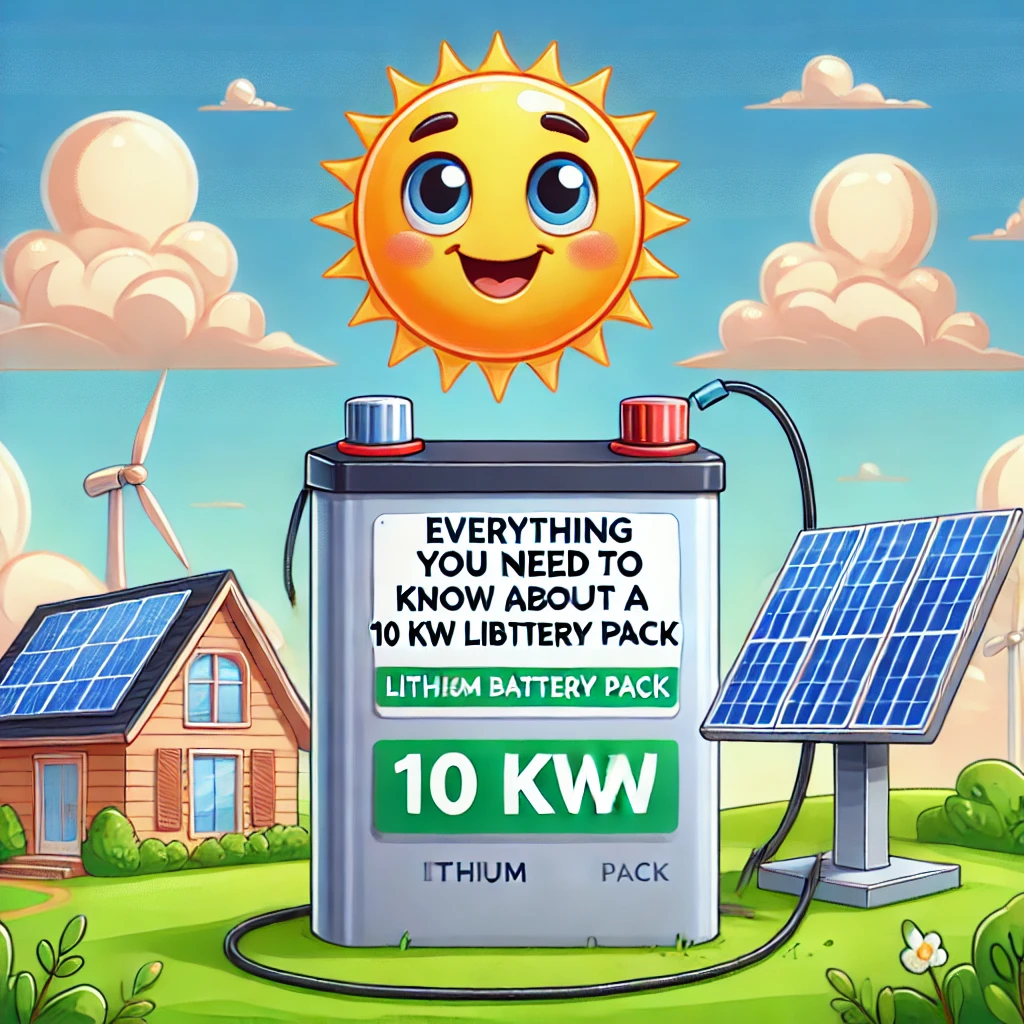As more people embrace renewable energy and sustainable living, off-grid solar systems have become increasingly popular. Whether you’re living in a remote location, preparing for emergencies, or simply looking to reduce your reliance on the traditional power grid, having reliable solar battery storage is essential. The best off-grid solar battery storage solutions provide consistent, eco-friendly energy, allowing you to store excess solar power for use when the sun isn’t shining. In this comprehensive guide, we’ll explore the top solar batteries for off-grid living, key features to consider, and tips for maximizing your system’s efficiency.
Why Off-Grid Solar Battery Storage is Essential
- Energy Independence:
Off-grid solar battery storage allows you to generate and store your own power, reducing or eliminating your reliance on the traditional power grid. - Consistent Power Supply:
Store excess solar energy for use during cloudy days, nighttime, or power outages, ensuring a continuous supply of electricity. - Sustainability:
Reduce your carbon footprint by using renewable energy and minimizing dependence on fossil fuels. - Cost Savings:
While the initial investment can be significant, off-grid solar systems can save money in the long run by reducing or eliminating electricity bills. - Emergency Preparedness:
Ensure you have a reliable power source during natural disasters, grid failures, or other emergencies.
Key Features to Look for in Off-Grid Solar Battery Storage
- Battery Capacity:
Measured in kilowatt-hours (kWh), this determines how much energy the battery can store. Choose a capacity that meets your household’s energy needs. - Depth of Discharge (DoD):
Indicates how much of the battery’s capacity can be used without damaging the battery. Higher DoD percentages mean more usable energy. - Cycle Life:
Refers to the number of charge and discharge cycles a battery can handle before its capacity diminishes. Look for batteries with a high cycle life for long-term use. - Efficiency:
The round-trip efficiency shows how much energy is retained during the charging and discharging process. Higher efficiency means less energy loss. - Battery Type:
Common types include lithium-ion, lead-acid, and flow batteries, each with its pros and cons in terms of efficiency, lifespan, and cost. - Scalability:
Choose a system that can be easily expanded if your energy needs grow in the future. - Warranty and Support:
Look for batteries with robust warranties and reliable customer support to ensure long-term performance.
Top 5 Best Off-Grid Solar Battery Storage Solutions
- Tesla Powerwall 2
Capacity: 13.5 kWh
DoD: 100%
Cycle Life: 10 years warranty
Efficiency: 90% round-trip efficiency
Pros: Sleek design, integrated inverter, and excellent energy management software.
Cons: Higher price point and requires professional installation.
Best For: Homeowners looking for a high-capacity, high-efficiency solution with smart technology integration. - LG Chem RESU 10H
Capacity: 9.8 kWh
DoD: 90%
Cycle Life: 6,000 cycles
Efficiency: 95% round-trip efficiency
Pros: Compact design, high energy density, and compatible with various inverters.
Cons: Limited capacity for larger homes.
Best For: Residential users needing a compact, efficient battery for moderate energy needs. - Sonnen Eco 10
Capacity: 10 kWh
DoD: 90%
Cycle Life: 10,000 cycles
Efficiency: 90% round-trip efficiency
Pros: Long lifespan, sustainable materials, and advanced energy management features.
Cons: Premium pricing and more suited for eco-conscious consumers.
Best For: Homeowners focused on sustainability and long-term performance. - Battle Born LiFePO4 Deep Cycle Battery
Capacity: 1.2 kWh per battery (modular)
DoD: 100%
Cycle Life: 3,000-5,000 cycles
Efficiency: 99% efficiency
Pros: Lightweight, durable, and easily expandable.
Cons: Requires multiple units for larger setups.
Best For: Off-grid enthusiasts and RV owners looking for a modular, flexible solution. - SimpliPhi Power Smart-Tech Battery
Capacity: 3.8 kWh per unit
DoD: 100%
Cycle Life: 10,000 cycles
Efficiency: 98% round-trip efficiency
Pros: High efficiency, non-toxic materials, and robust performance.
Cons: Higher upfront cost.
Best For: Homes and businesses seeking a sustainable, long-lasting energy storage solution.
How to Choose the Best Off-Grid Solar Battery Storage for Your Needs
- Evaluate Your Energy Consumption:
Calculate your daily energy usage to determine the battery capacity you’ll need. - Consider Your Budget:
While lithium-ion batteries are more efficient and longer-lasting, lead-acid batteries offer a more affordable upfront cost. - Assess Space and Installation Requirements:
Ensure you have adequate space for installation, especially for larger battery systems. - Think About Future Expansion:
Choose a scalable system that allows you to add more batteries as your energy needs grow. - Check Compatibility:
Make sure the battery is compatible with your existing solar system and inverter.
Tips for Maximizing the Efficiency of Your Off-Grid Solar Battery Storage
- Optimize Solar Panel Placement:
Ensure your solar panels are positioned for maximum sunlight exposure throughout the day. - Monitor Energy Usage:
Use smart energy management tools to track your consumption and optimize usage patterns. - Regular Maintenance:
Keep your solar panels clean and inspect battery connections regularly to ensure optimal performance. - Avoid Deep Discharges:
While some batteries can handle deep discharges, frequent full discharges can reduce lifespan in certain types. - Temperature Management:
Protect batteries from extreme temperatures to maintain efficiency and extend lifespan.
Pros and Cons of Off-Grid Solar Battery Storage
Pros:
- Provides energy independence
- Reduces electricity bills over time
- Eco-friendly and sustainable
- Reliable power during outages
- Scalable for future energy needs
Cons:
- High upfront cost
- Requires regular maintenance
- Performance can be affected by weather conditions
- Space requirements for larger systems
Conclusion
Investing in the best off-grid solar battery storage is a crucial step towards achieving energy independence and sustainability. Whether you’re living off the grid full-time, preparing for emergencies, or simply looking to reduce your carbon footprint, choosing the right solar battery can make all the difference. By considering factors like capacity, efficiency, and scalability, you can find a solution that meets your energy needs and supports a sustainable, off-grid lifestyle.
FAQs
- How long do off-grid solar batteries last?
Most lithium-ion batteries last 10-15 years, while lead-acid batteries typically last 5-7 years, depending on usage and maintenance. - Can I add more batteries to my off-grid system later?
Yes, many off-grid solar battery systems are scalable, allowing you to add more storage as your energy needs grow. - Are off-grid solar battery systems worth the investment?
Yes, while the upfront cost can be high, off-grid systems provide long-term savings, energy independence, and environmental benefits. - What size battery do I need for off-grid living?
The size depends on your daily energy consumption. A typical off-grid home might need 10-20 kWh of storage. - Can off-grid solar batteries power an entire house?
Yes, with the right capacity and setup, off-grid solar batteries can power an entire house, including appliances, lighting, and electronics.



